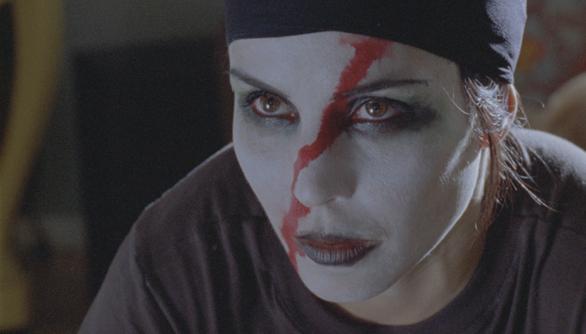
I kept reading this trilogy because I enjoyed the writing, the subject matter, and Lisbeth Salander's character. In The Girl Who Played With Fire, these only got better.
There is less of Blomkvist & Salander's relationship because they are separated at the beginning of this book and don't meet again until the last page. However, they do communicate via the internet. While this is appropriate given the events of the plot, the last two books, in a way, suffer from not being able to develop their relationship further.
So, why are the last two books in the Millenium series (The Girl Who Played With Fire & The Girl Who Kicked the Hornet's Nest) worth reading as well? In a word: Lisbeth. These books are no longer Harriet Vanger's story, they're Lisbeth's.
Lisbeth Salander makes an interesting and unique protagonist. She is in her twenties, the child of a single mother, and she has a tendency towards violence; for example after a boy beat her up in grade school she attacked him with a bat. She's affected by an unidentified mental health issue that a friend guesses might be Asperger's syndrome (https://en.wikipedia.org/wiki/Asperger_syndrome). This is exaggerated by others who conclude that because she is quiet, anti-social, occasionally aggressive, and dresses differently that she is an extremely autistic, unintelligent person who has no social skills. She's very intelligent, but has problems relating to other people. This happens to be on the autism spectrum - but people with AD are far from exhibiting symptoms of what we typically consider to be autism. I feel I understand this experience of Salander's - the people around her have a strong need to label her as something because really she is a bit odd and in many ways defies categorization.
Salander is also living in a country, Sweden, that Larsson depicts as full of misogynists. That country has violated her civil rights because it doesn't appreciate her for who she is - an intelligent and unique woman who has no desire to simply do as she's told. I see her as having enviable characteristics, but oddly the society she lives in thinks the opposite - mostly, I think, because they don't want her to be strong & oppose them.
The social commentary in The Girl With the Dragon Tattoo is mostly confined to misogyny, racism/Nazism, and some criticism of the financial world (the Wennerstrom affair). The next two books branch out from that. At the beginning of the story there is a double murder and Salander is the prime suspect. What follows is a media blitz, a prejudiced police investigation, a conspiracy whose roots begin in the Swedish intelligence community (their equivalent to the CIA), and an examination of corruption in both the foster care/mental health systems. Essentially, all of these social entities (medicine, law and order, government, national security, etc.) which are tasked to discover the truth of events are actually the worst at discovering the truth due to their prejudices about those involved or because they would rather protect their own interests. So Salander, who in the first book was simply a very talented researcher who worked on a family mystery, is now the center of a national scandal and a critique of Swedish society.
So I would definitely say that the trilogy goes in a different direction in this book. The trilogy is, in a way, increasingly less about a work of fiction that only makes a good thriller. It becomes more about Larsson's philosophy, opinions and real work as a journalist. My guess is that he investigated similar issues in real life and uncovered lies, deceptions and unsavory truths that he chose to explore in a fictional work.
Personally, I enjoyed most of it with the exception of the intelligence angle. As the conspiracy against Salander extends beyond the police who hunt her I found the plot less believable. It is only in The Girl Who Kicked the Hornet's Nest though that story becomes the central issue. So in my opinion the first two books are the most worth the reading.



No comments:
Post a Comment